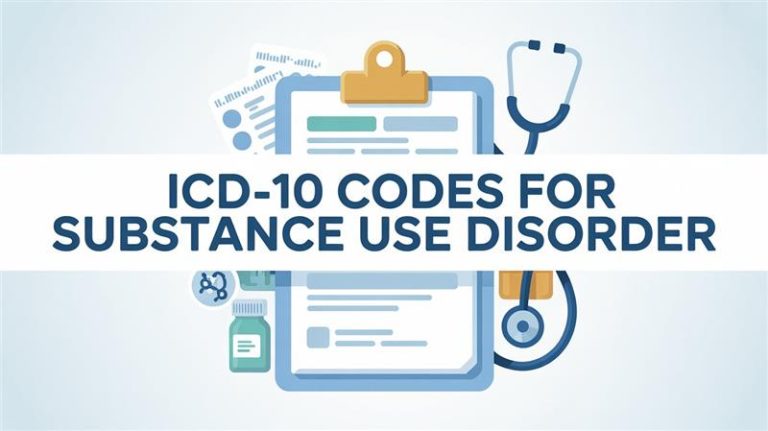Millions of individuals around the world experience depression. Depression can affect someone’s mood, leading to enduring sadness and tiredness, problems with appetite, sleeping issues and losing interest in things they enjoy. You can get help because there are effective treatments for depression. Cognitive Behavioral Therapy (CBT) is a widely accepted strategy that many people use to change their destructive thoughts and behaviors.
Depression is not only about sadness for us at DeLand Treatment Solutions. Treatment should be tailored to each person, with CBT often helping in that process. This blog explains the process and effects of cognitive behavioral therapy for treating depression and offers advice on using it daily.
Understanding Cognitive Behavioral Therapy (CBT)
In CBT, a person learns to understand how thoughts and feelings affect their behaviors. Unlike some other approaches, CBT stays focused on the present and how to fix the problem at hand. Identifying and dealing with unfavorable habits of thinking can impact how we behave and feel.
- A lot of people can use CBT since it is easy to access and is structured to last just a short while.
- Many therapists encourage clients to work on different tasks in their journal or try different techniques from cognitive behavioral therapy between sessions.
- CBT can be effective in reducing depression on its own or when combined with other medications.
Benefits of CBT for Managing Depression
Many individuals with depression find that CBT is very helpful. Here are a few of the most effective approaches associated with CBT and recovery.
1. Addresses Root Thought Patterns
Those with depression usually face the inner message “I am not good enough for anything” or similar thoughts. CBT helps people identify inaccurate thoughts and think about things in a more balanced way.
2. Provides Tools for Coping
CBT looks into the issue and provides ways for you to manage it. Through CBT, you learn how to address stress, plan for success, and take time to calm yourself.
3. Promotes Behavioral Activation
Those suffering from depression usually try to avoid being involved with others. CBT motivates individuals to take part in activities, despite their lack of motivation or excitement. As a result, the person’s mood and enthusiasm tend to get better throughout the activity.
4. Reduces Reliance on Medication
While taking medication may be beneficial, CBT helps people cope with depression without the need for drugs. Some people discover that taking medicine and doing CBT therapy gives them the best advantages, while others overcome their depression with therapy alone.
5. Prevents Relapse
CBT looks beyond temporary relief and tries to make lasting changes. After mastering these types of therapy, individuals have improved skills to cope with challenges and are less likely to relapse.
100% Confidential Support is Available 24/7
No matter what you’re going through, you’re not alone. Our dedicated team is here to provide a safe, judgment-free space where you can talk openly and honestly. Whether you need emotional support, resources, or just someone to listen.
We’re here for you—completely confidential and always respectful of your privacy. Call us today!
Key Techniques in CBT
CBT relies on various methods to help guide people to think and behave differently. Using these techniques in cognitive behavioral therapy may help people handle their depression:
1. Cognitive Restructuring
Another option is to use “thought challenging,” which is trying to notice harmful, unbalanced ideas and find better ways of thinking. Yes, saying “I’ve faced challenges, but I’m making progress with each try” is better.
2. Behavioral Experiments
CBT encourages you to test your beliefs by performing experiments in real life. Should you feel lonely, your therapist could help you arrange a meeting and observe what happens.
3. Activity Scheduling
Developing an organized routine each day helps you avoid the laziness and lack of motivation that depression may lead to. Arranging to do things you find pleasurable or meaningful can help you feel better and achieve something.
4. Training the Mind and Body for Relaxation
Although part of CBT, doing mindful exercises or light relaxation, such as deep breathing, could help calm you and better manage your emotions.
5. Problem-Solving Skills
Even simple problems may seem too hard for someone who is depressed. CBT guides you through solving problems by separating them into understandable stages, assessing what can be done and encouraging you to act.
6. Journaling and Thought Records
Recording your thoughts and feelings in a diary may make your unconscious behaviors noticeable. Often, therapists get their clients to record their thoughts about particular situations and then try to help restructure those thoughts.
Such approaches are adjustable so that CBT suits each person’s needs individually.
Deland Treatment Solutions
Battling with Drug and Alcohol Addition? Remember, you are not alone and we are here to help you!
Incorporating CBT into Daily Life
Cognitive-behavioral therapy helps people by teaching them ways to apply new techniques to real life. Most of the healing occurs when you apply what you learn in the therapy room elsewhere. You can do a few things every day to apply CBT principles in your life.
1. Cognitive Restructuring
Try to reflect on yourself and your daily routine for a brief time. Think about why you feel the way you do by asking things such as, “Is there something that made me feel this mood?” or “Did any unsettling thoughts pop into my mind?”
2. Behavioral Experiments
Make sure to accomplish steps that are small and within your reach. For example, you could say “I will go for a quick walk today,” instead of worrying about “fixing” your life.
3. Activity Scheduling
Trying to take part in activities from your past can restore your interest and make you smile again. You can spend your time by reading, painting, cooking or exploring nature.
4. Mindfulness and Relaxation Training
Using CBT regularly is important. Reduce your stress by following the lessons given at therapy, and make certain you keep up with your appointments with your therapist.
5. Problem-Solving Skills
You can overcome isolation by talking with a therapist, a group of fellow survivors or even members of your family.
6. Journaling and Thought Records
Recognize every little accomplishment. Depression may be handled in spurts rather than a clear path, but seeing minor progress can inspire you.
Conclusion: Start Your Healing Journey with CBT
Depression may seem impossible to overcome, but there are effective methods for treatment, and you can recover. Cognitive behavioral therapy helps depressed individuals manage their minds and regain control over their feelings and actions. CBT can benefit anyone with depression, no matter how serious the symptoms.

Our expert care team at DeLand Treatment Solutions focuses on what is best for you. All of our licensed therapists focus on evidence-based treatment, including a CBT program meant to support your well-being for the long run.
If you feel that you or someone you care about needs assistance with depression, see an expert care right away. If you are interested in therapy, contact DeLand Treatment Solutions at (386) 866-8689 today to learn how we can help you.





















